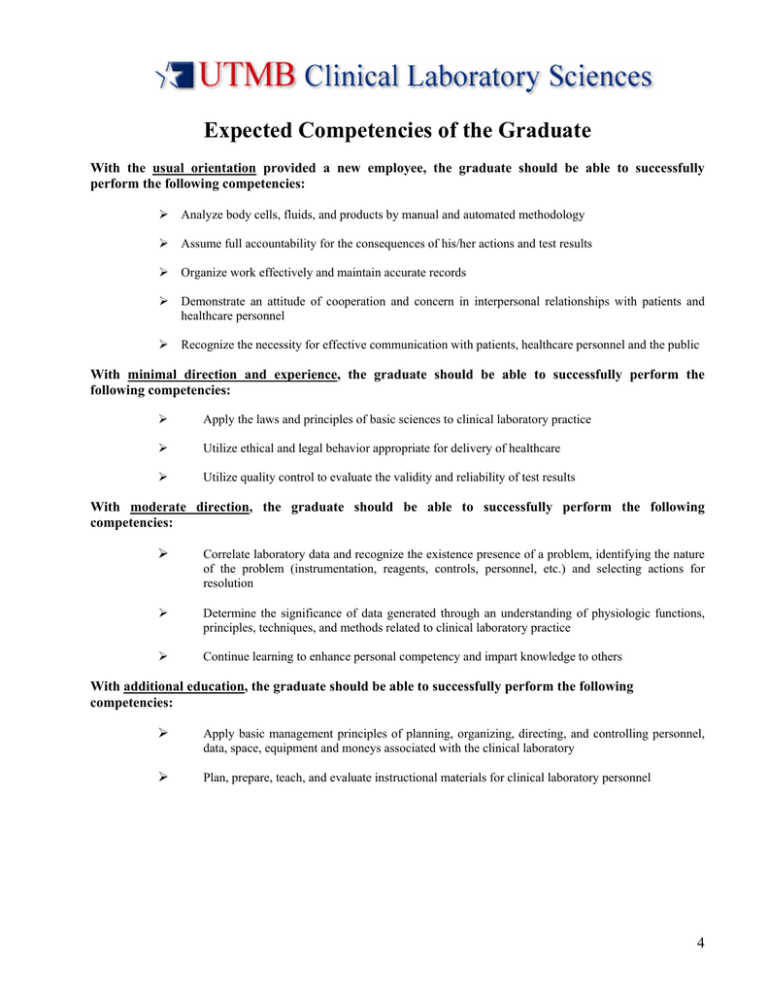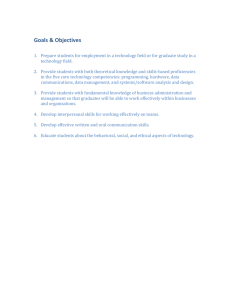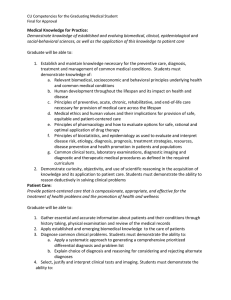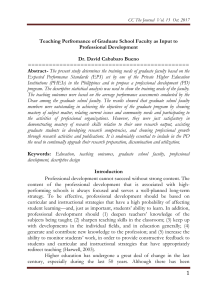Expected Competencies of the Graduate
advertisement

Expected Competencies of the Graduate With the usual orientation provided a new employee, the graduate should be able to successfully perform the following competencies: ¾ Analyze body cells, fluids, and products by manual and automated methodology ¾ Assume full accountability for the consequences of his/her actions and test results ¾ Organize work effectively and maintain accurate records ¾ Demonstrate an attitude of cooperation and concern in interpersonal relationships with patients and healthcare personnel ¾ Recognize the necessity for effective communication with patients, healthcare personnel and the public With minimal direction and experience, the graduate should be able to successfully perform the following competencies: ¾ Apply the laws and principles of basic sciences to clinical laboratory practice ¾ Utilize ethical and legal behavior appropriate for delivery of healthcare ¾ Utilize quality control to evaluate the validity and reliability of test results With moderate direction, the graduate should be able to successfully perform the following competencies: ¾ Correlate laboratory data and recognize the existence presence of a problem, identifying the nature of the problem (instrumentation, reagents, controls, personnel, etc.) and selecting actions for resolution ¾ Determine the significance of data generated through an understanding of physiologic functions, principles, techniques, and methods related to clinical laboratory practice ¾ Continue learning to enhance personal competency and impart knowledge to others With additional education, the graduate should be able to successfully perform the following competencies: ¾ Apply basic management principles of planning, organizing, directing, and controlling personnel, data, space, equipment and moneys associated with the clinical laboratory ¾ Plan, prepare, teach, and evaluate instructional materials for clinical laboratory personnel 4



